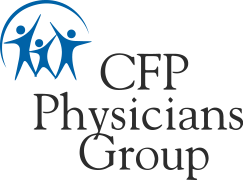Blog
Recent Posts
Why Annual Physicals Are Essential for Long-Term Health

The 3 Stages of Caregiver Burnout & Tips to Manage Stress
Caring for a loved one—especially someone facing chronic illness, dementia, or aging-related challenges—can be one of life’s most meaningful roles. But it can also be emotionally, physically, and mentally exhausting. Over time, caregivers may experience what’s known as caregiver burnout, a state of overwhelming stress and fatigue.
At CFP Physicians Group, we support both patients and caregivers by offering not just medical services, but also guidance on self-care and stress relief. In this blog, we’ll walk you through the three stages of caregiver burnout and offer practical tips to manage each phase.
What Is Caregiver Burnout?
Caregiver burnout is a condition of physical, emotional, and mental exhaustion caused by prolonged caregiving duties. It often leads to feelings of helplessness, resentment, or even detachment from the person you’re caring for. Left unaddressed, burnout can impact your health and the quality of care you provide.
The 3 Stages of Caregiver Burnout
Understanding the stages of caregiver burnout helps in recognizing the warning signs early and taking steps to protect your well-being.
Stage 1: The Honeymoon Phase (Overcommitment)
In the early stage, caregivers often feel highly motivated and determined to “do it all.” You may take on multiple responsibilities without asking for help. While this energy feels positive at first, it’s unsustainable.
Signs include:
- Ignoring your own needs
- Feeling obligated to always be available
- Constantly researching or managing care without breaks
Tip:
Start setting boundaries early. Accept that it’s okay to ask for help. Consider using telemedicine or in-clinic support services from trusted healthcare providers like CFP Physicians Group to ease the load.
Stage 2: Chronic Stress and Irritability
Over time, the constant demands of caregiving without rest or recognition lead to chronic stress. You might begin to feel overwhelmed, frustrated, or anxious.
Signs include:
- Sleep problems
- Changes in appetite
- Withdrawal from friends or hobbies
- Feeling impatient or angry
Tip:
Recognize that your health matters. Prioritize regular checkups or annual physicals and blood work to monitor your own wellness. Practice daily stress-relief techniques like walking, journaling, or mindfulness exercises.
Stage 3: Burnout and Detachment
In the final stage, caregivers may feel emotionally numb or disconnected from their role. Burnout often leads to physical exhaustion, depression, or a complete breakdown.
Signs include:
- Feeling hopeless or indifferent
- Frequent illness or fatigue
- Avoiding caregiving responsibilities
- Thinking of quitting caregiving altogether
Tip:
If you find yourself at this point, it may be time to pause and seek guidance. Consider connecting with healthcare professionals or caregiver support networks. At CFP Physicians Group, our primary and geriatric care services are designed to reduce your stress and enhance your loved one’s quality of life.
Tips to Manage Caregiver Stress at Any Stage
Here are some universal strategies that can help you manage stress and avoid caregiver burnout altogether:
1. Use Respite Services
Give yourself a break by turning to respite care services or enlisting the help of dependable relatives and friends.
2. Schedule Regular Health Screenings
Caregivers often neglect their own health. Stay on top of your well-being with regular checkups and lab work.
3. Stay Connected
Avoid isolation. Talk to friends, join caregiver support groups, or speak to a healthcare provider for emotional support.
4. Practice Self-Care Daily
Taking just a few moments for yourself can have a positive impact. Simple practices like gentle stretching, mindful breathing, or engaging in a hobby you enjoy can help restore your energy.
5. Know When to Ask for Help
If your loved one’s needs exceed what you can handle, contact a medical professional. You can reach out to CFP Physicians Group for guidance on next steps.
You’re Not Alone: Partnering with CFP Physicians Group
At CFP Physicians Group, we understand that caregiving is a demanding role—and no one should have to do it alone. With comprehensive services like geriatric care, telemedicine, and primary care, we’re here to support both patients and caregivers on their health journey.
Learn more about our team and philosophy and how we make quality care more accessible and compassionate for families just like yours.
Contact Us for Support
If caregiving feels like too much to handle or you’re struggling to cope, it’s important to take action before burnout sets in. Contact CFP Physicians Group today to speak with our caring staff and learn how we can help support you and your loved one.

